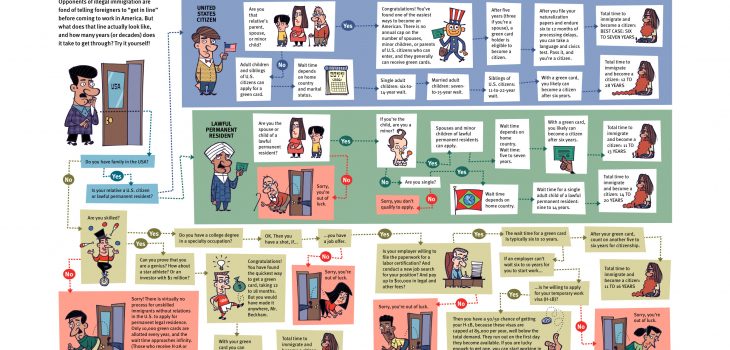 Cooperation
Cooperation
What does it mean to “burn down” ____? (Or,…
If you’re not familiar with the work of Rusty Guinn and Ben Hunt at Epsilon Theory (ET), you’re missing out. Their clarion calls about good works, community, citizenship, and fixing broken political and economic systems are required reading. These frequent topics make Hunt’s famous phrase — Burn. It. The. Fuck. Down. (#BITFD) — jarring to many regular readers of ET.
They understand this objection. As Hunt put it in a tweet announcing a piece on what they mean by BITFD: “Many of you are uncomfortable with our call to #BITFD… you *should* be uncomfortable.” And as Guinn put it in the actual piece:
“No, anyone who considers themselves a small-c conservative should feel uncomfortable about burning anything down without knowing what “it” is. Anyone who considers themselves a small-l liberal should feel uncomfortable about burning anything down without knowing “how” we plan to do it… And anyone who is furious about the literal burning being done to communities and businesses by, say, the LARPers in Portland, Seattle and Rochester ought to be uncomfortable if the idea looks anything like that, too.
If you feel like any of those descriptions fits you, I’ve got two messages for you:
The first message is that we agree with you.”
If you’ve read ET for any length of time, none of this will be a surprise. I opened this post by mentioning some of their frequent topics (good works, community, citizenship, and fixing broken political and economic systems). There’s so much of that in their work that when you read BITFD, you can’t possibly think that they mean destruction (at least not of admirable things); you know they mean something more like reform. Put differently, it’s hard to mistake their meaning when you’re familiar with their larger body of work.
Why do I keep emphasizing that word? Because it gets to the “full hearts” that Hunt and Guinn are always talking about. And because it gets to an excellent way to judge whether someone is trustworthy or a partisan hack.1 Like all the best lessons, once it’s seen, it can’t be unseen.
For me, the lesson came from Nassim Taleb:
“You can criticize either what a person said or what the person meant. The former is more sensational, hence lends itself more readily to dissemination. The mark of a charlatan[2]… is to defend his position or attack a critic by focusing on some of his/her specific statement (“look at what he said”) rather than blasting his exact position (“look at what he means” or, more broadly, “look at what he stands for”), the latter of which requires an extensive grasp of the proposed idea.”
When someone twists another person’s words to make the person sound evil, to discredit them, to win a debate point, or the like, it’s a mark of bad faith — of hackery. (It could also be a mark of misunderstanding or stupidity.) While we’re all guilty of doing this, we really ought to do our best to avoid it. Taleb goes on to talk about the principle of charity as the opposite of this kind of hackery. It’s best to understand a person’s meaning, to be able to state their position without sensationalizing it, and then to tear it down for being wrong, if necessary.
Sam Harris has articulated the same idea, speaking about the ethics of journalism and a healthy public discourse. When talking with Scott Adams, Harris offered to edit out anything in their podcast if Adams wasn’t happy with how his words were sounding, and went on to explain how that’s the opposite of how many journalists operate. From Parsing Persuasion’s transcript of that Harris/Adams podcast:
“my goal is – and this doesn’t just apply to you – my goal is always to be dealing with the best version of the other person’s case. I want you to be happy with what you’ve said on the podcast. So this is the opposite of a gotcha interview. And I don’t think that many people understand that and, having been on the other side of literally hundreds of interviews at this point as I know you have, I think we both can say that almost no one operates this way. Journalists deliberately don’t because they want to reserve the right to catch you saying something embarrassing. This completely perverse ethic that seems to have been enshrined in journalism where, if you say something is off the record before you say it, well then they’ll generally keep it off the record but if you say that about something you regret saying just two seconds ago, something that didn’t come out right, well then they won’t let you take it off the record after the fact. This has always struck me as a less than ethical way to deal with people, and their ideas.“
I can’t possibly be the only person who wants to read and listen to people who operate as Taleb and Harris seek to have us act, rather than the “journalistic” ethos of which they complain. I like Twitter for this purpose; I can banish hacks from my feed when they become too tedious, and give more credit to information from people who consistently demonstrate that they’re good-faith actors.
Twitter is great for another reason related to this discussion. We can extend the benefit of the doubt to people whose words appear to be outrageous — “what do you mean?” we can ask them directly, rather than simply assuming that we understand.
If you want to know what ET means when they talk about burning down ____, you can read it straight from them.3 If you want to know what other people mean by burning down ____, you could ask them, but watch out for dealing with crazy people. As Guinn pointed out, “LARPers in Portland, Seattle and Rochester” are literally burning down businesses — I would say they’re destroying the property of countless people who have nothing to do with police misconduct (or whatever excuse rioters are using to justify their violence), to say nothing of the murders and lesser crimes toward people that have occurred.
I have a feeling that many of these people mean our system of private property and free exchange when they talk about burning down ____, but I generally don’t care what rioters think. People who demonstrate the principle of charity, who operate in good faith, on the other hand….
******
[1] If you’re a fan of the ET “pack” idea, I’d also say that attempting to act in accordance with this lesson is a necessary but insufficient condition for a person to claim membership in that pack.
[2] If you didn’t click through on the Taleb link above, you don’t know what the ellipsis omitted. He accused Sam Harris of being a “journalist” (a Talebian criticism) and “promoteur of pseudo-rationality.” I don’t know if there are good reasons for these accusations. However, I think it’s hilarious in light of Harris’ comments to Scott Adams, outlined above. I omitted the Harris reference because it’s a distraction from the main point.
(The fact that Taleb and Harris have both addressed the importance of the principle of charity makes me wonder whether there’s some misunderstanding that’s driving their public comments about the other person. I suspect I’m not the only one who’s curious about that feud.)
[3] I’m on board with most of their program. Look at this list of problems and tell me that they’re off target on more than one or two:
- Our two-party political system
- Our federal tax code
- Our antagonistic, militarized model of policing
- Our system for establishing for-profit state enterprises
- Our politically broken news media
- Our broken relationship with elite universities
- Our Federal Reserve’s realized mandate
- Our “independent board” system for shareholder representation
- Our monopolies (of several varieties)
- Our forever wars
I hope to make some time to address some of these problems. This post has something to do with #5. If you’re pining for a third party as the solution to #1, best of luck to you; I’m *sure* that you’ll figure out how to replace/supplement one of the major parties, where generations of people before you have failed. I believe that our first-past-the-post voting system sorts voters into two major parties by design. Accordingly, instant runoff voting is my strongly-preferred answer there, so I’m excited about what’s happening in Maine and some other places with that policy.












